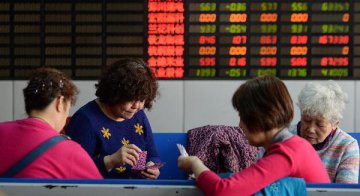
China Securities Regulatory Commission (CSRC) released the approval of the 21st batch of IPOs in 2017 with eight enterprises approved to raise no more than 2.5 billion yuan. The CSRC approved seven, four and eight IPOs in recent three weeks. It shows that the regulatory authorities are seeking dynamic balance in the issuing of new stocks while studying the reform and the market acceptability.
The adjustment and change in the issuing of new stocks show that the regulatory authorities are considering the reform efforts and the market acceptability, which will facilitate the stable operation of the market. However, IPOs are not core factors determining the market trend. Investors should not make decisions based on the number of IPOs.
The issuing system is a key sector in the comprehensive reform of the capital market. It marks the maturity of the market with other fundamental systems. Rome is not built in a day. The market-based and legalized reform should be based on the coordination of all reforms.
Some pointed out that the Chinese capital market is not mature. There are no complete systems on de-listing, the protection of investors and the punishment on illicit activities. It is advised to strictly control IPOs and the normal issuing of new stocks should be launched when all conditions are mature.
The above view separated the issuing system with other systems in the capital market and simplified the complicated comprehensive reform into the issuing reform and reforms for the issuing reform.
The CSRC officially initiated multi-layered reform in the issuing of new stocks in 2009. Various reforms, including the reforms on the de-listing system, the re-financing system, the protection of investors, the regulation on listed companies and the establishment of a multi-layered capital market, are also advancing. Such reforms cannot be advanced individually.
The one-way market is unhealthy. It is impractical to improve other systems first and shore up the weakness in the issuing system later.
The issuing of new stocks experienced nine suspensions and re-initiations in the history. However, the market trend was not reversed after the suspension of IPOs and the market was under pressure after the re-initiation. It provided opportunities for shell premiums. Listed companies also experienced long-term “sickness” in the A-share market.
The issuing of new stocks has become increasingly normal since the fourth quarter with fluctuations in the secondary market. It has a wide consensus that “IPO is not the fundamental factor in determining the market trend” and “the suspension of IPO is not beneficial to the market development”.
The financing through IPOs is the fundamental function of the market and it should give full display to the function, indicated Gui Haoming, chief analyst from Shenwan Hongyuan Securities. The adjustment in the IPO pace by the regulatory authorities is to ease market worries and maintain the market stability. It is necessary to adjust the pace in short term. In the long term, it has to advance reform at a higher speed.
The IPO is a normal mechanism in the capital market and the normal IPO marks the normal operation of the market, indicated Yang Delong, chief economist from a fund.
The approval of IPOs can be quick or slow, but it should not be suspended, indicated Dong Dengxin from Wuhan University of Science and Technology. The suspension of IPOs will reverse the market trend. It will further strengthen the bearish expectation of investors.
The current issuing system has not reached the “ideal status” that the market can select enterprises, the market gaming determines the price and the market determines the issuing space. For the “ideal status” anticipated by the regulatory authorities and the market, it is necessary to maintain the normal issuing of new stocks. The market-based reform of the issuing system should not be achieved through the suspension of IPOs, including the overall reform of the capital market. It should not be shaken as a result of the price gaming in the secondary market.
For a journey of 100 miles, 90 miles is only halfway. While speeding up in establishing a stock market with complete financing functions, solid foundation systems, effective market regulation and the interests of investors fully protected, it should maintain normal issuing of new stocks to guarantee the realization of the basic financing functions of the market and advance a series of comprehensive reforms, including the de-listing, the protection of investors and the regulation on listed companies.
Seeking dynamic balance on the basis on normal issuing of new stocks will improve the pace in the issuing of new stocks. Under the current market conditions, it will improve the market-based reform under the current development of the capital market.
Translated by Star Zhang




















Latest comments